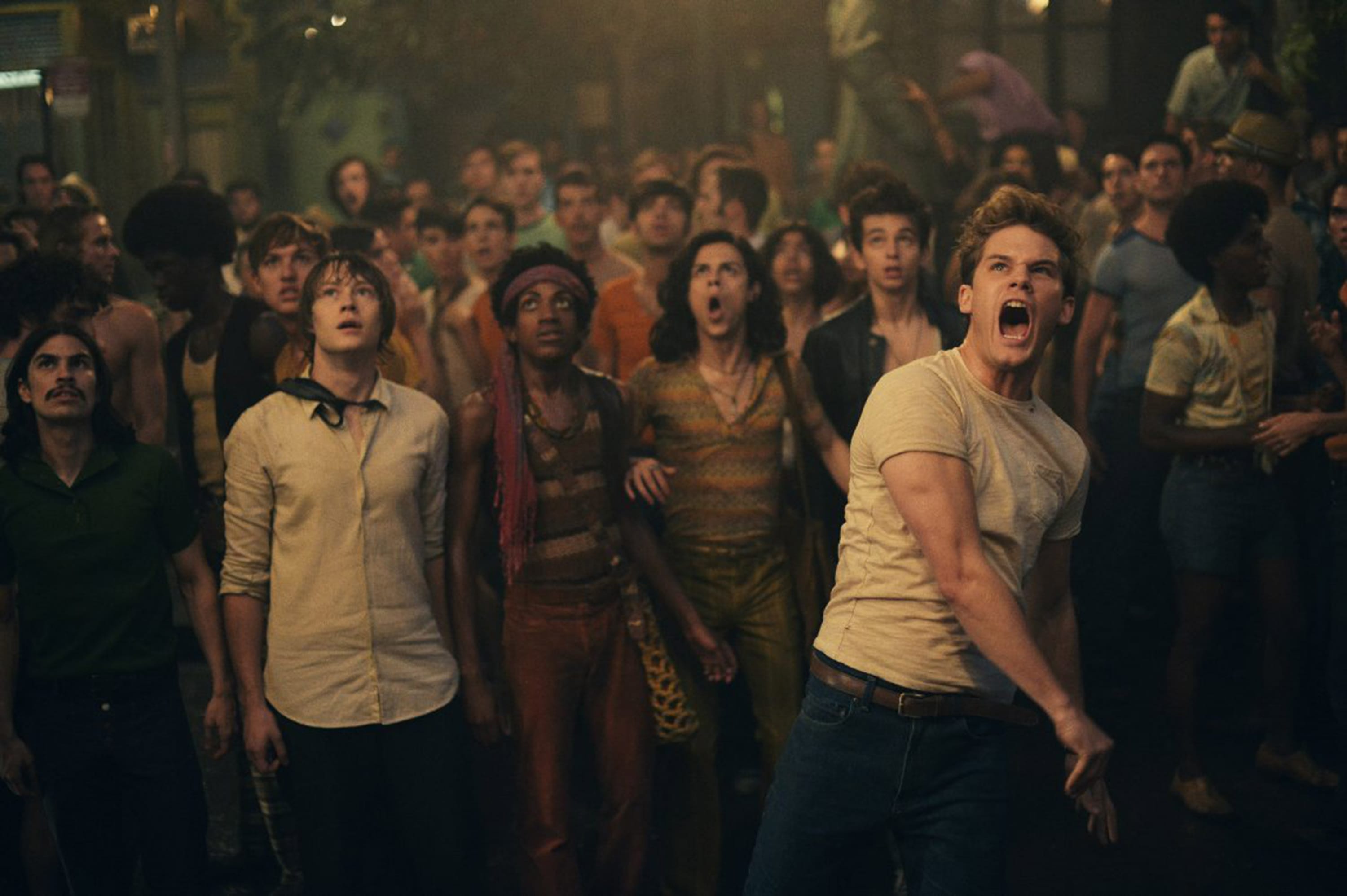Somehow, director Roland Emmerich has made a movie even less historically accurate than “10,000 BC,” the one depicting Egyptian-style pyramids being built with the help of woolly mammoths.
But facts are not the problem with “Stonewall.” This is not a documentary.
The real problem is that its narrative inventions embrace every wrong clich?, from the first word to the last speech of Jon Robin Baitz’s screenplay and in the desperate lack of nuance afflicting nearly every performance. Director Emmerich, best known for the shamelessly enjoyable “Independence Day” and “The Day After Tomorrow,” begins each scene in “Stonewall” with the knob at 11. He hammers the material home in a blunt, screechy style that falsifies even the supporting characters who really were there, in and around the gay bar run by the mob, raided once too often by the police and destined for gay-liberation and civil rights immortality.
In “Stonewall,” Baitz hangs the story, based on Emmerich’s outline, on the coming-out saga of Columbia University freshman Danny, a fictional hunk (Jeremy Irvine of “War Horse”) who flees small-town Indiana life in the closet for the exotic streets of Greenwich Village. Danny’s a newcomer among the community of “scare queens” (drag queens without money, living on or very near the streets). Jonny Beauchamp plays Ray/Ramona, his lovelorn bestie; Jonathan Rhys Meyers is the vaguely predatory gay rights activist who becomes Danny’s lover and whose apartment overlooks the Stonewall Inn. Otoja Abit takes on one of the script’s real-life players, transgender drag queen Marsha P. Johnson, whom many credit with being the first to fight back at the club-wielding police outside the Stonewall.
Once Danny arrives in Manhattan, he transforms into a bland conduit for mainstream — i.e., straight — audiences to experience this strange new world of overacting stereotypes. “Judy just died,” says Beauchamp’s Ray at one point. “Judy who?” responds Irvine’s Danny, flatly.



